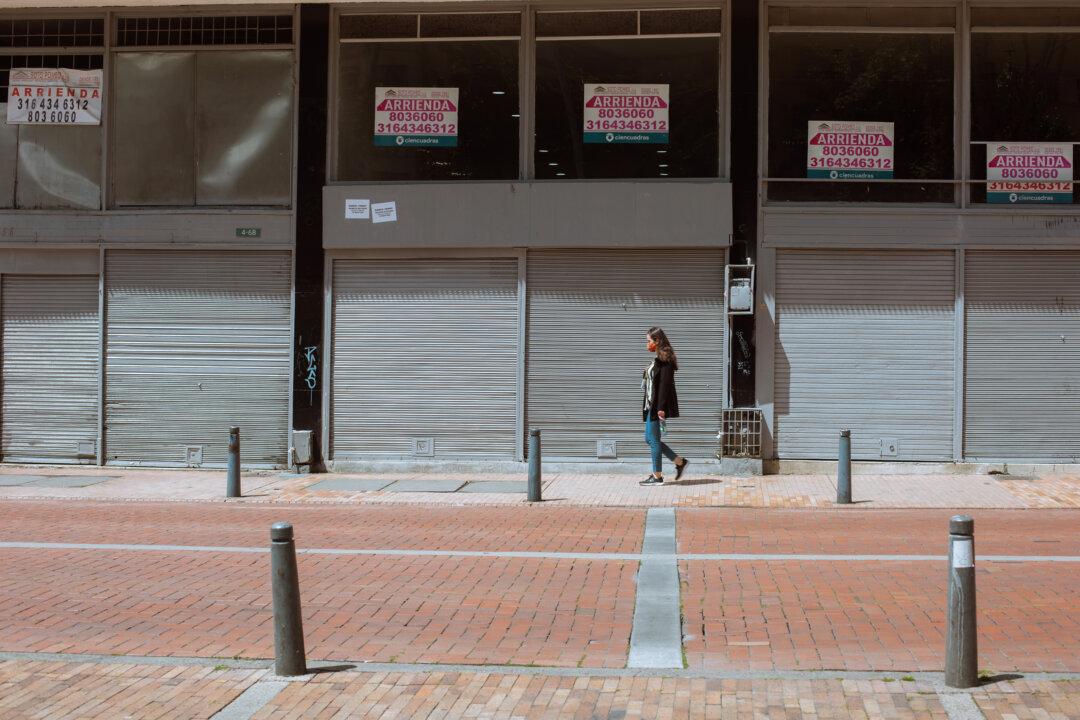Residents in Bogotá, Colombia, have expressed fear and anger over a rise in violent crime that followed on the heels of pandemic restrictions, which caused inflated poverty and unemployment rates beginning in March 2020.
“It doesn’t feel safe anymore,” Camila Garcia, 23, told The Epoch Times. “My family lives in Rosales [in Bogotá]. It was a safe place to grow up, but my dad doesn’t want my sister and I to walk alone now. People have gotten more aggressive [since the pandemic], kind of desperate, and crime is definitely worse.”





